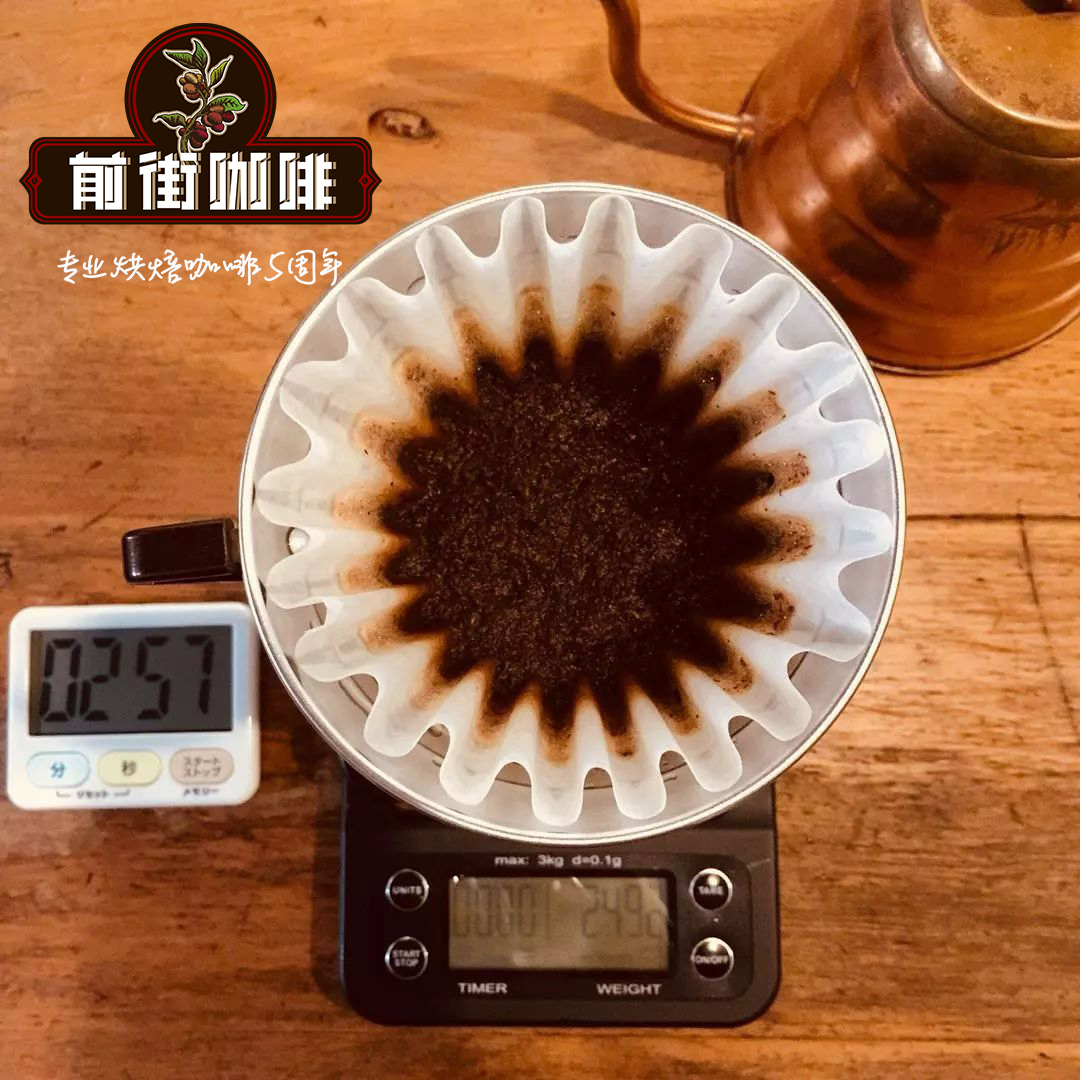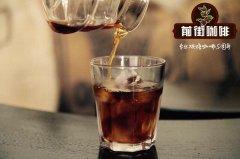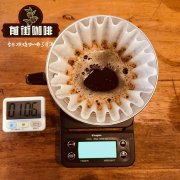You must know Yega Xuefei, the most high-profile producing area of Ethiopian coffee brands.

Professional coffee knowledge exchange more coffee bean information please follow the coffee workshop (Wechat official account cafe_style)
Ethiopia is an important producing area of boutique coffee, and it is also the place where coffee is produced at present. If you mention Ethiopia, you must know Yega Xuefei. Today, let's take a look at the special features of this producing area.
Ethiopia is the birthplace of Arabica species, has a variety of native species, and is an important native coffee gene pool. The production season is from October to December every year, with an annual output of about 8 million bags, making it one of the top five coffee producers in the world. The pattern of coffee cultivation in Ethiopia is similar to that in Taiwan, with fewer large estates and mostly small areas of their own, so they are mostly in the form of small farmers' cooperatives. Even so, don't underestimate the weight of coffee in Ethiopia. It is estimated that about 15 million people in Ethiopia are involved in the process from coffee harvest to export. Therefore, coffee is not only a crop that small farmers depend on for a living, but also an important source of foreign exchange that affects the whole country.
Yega Xuefei is famous for its unforgettable characteristics such as its special floral fragrance and lemon and citrus flavor, which made it independent from the Sidamo producing area in 1995. it is no longer just a small town under Sidamo province, but has become an independent and famous producing area.
▼ pre-1995 division of Ethiopian administrative regions
▼ division of Ethiopia after 1995, Yega Xuefei belongs to the Gedeo district.
On the other side of the article, the editor introduced the Ethiopian ECX trading system, and mentioned the disadvantage that the system could not trace the source of the product, which led to the fact that the market was full of Yega Xuefei coffee, which was not really produced in the small town of Yega Xuefei.
Ethiopia's official "Yega Xuefei" includes Wanago, Yirgacheffe, Kochere and Gelena Abaya. The coffee produced from these areas is collectively referred to as Yega Xuefei. So how to choose in order to buy the real Yega Sheffield-style coffee? Through the ECX trading system, coffee beans from the Gaidio region are divided into two groups: group A, which has the flavor of Yega Chefe, and Group B, which does not have the flavor of Yega Chefe. Therefore, if the coffee you buy is Cochel ECXA, it not only means that it is produced in the town of Cochell, but also means that it has the flavor of Yega Sheffield. But it should be noted that even if you buy coffee from the town of Yejasuffi, it doesn't mean it has the flavor of Yejassefi. We still have to look at the cup test results and divide them into group An or group B.
For example, if you buy an ECXB, it means that the coffee comes from the small town of Yejasuffi, but it doesn't have the flavor of Yega Sheffield. How did this happen? It's like going to Nantou to buy Alishan-flavored tea, but it doesn't taste as expected, which is confusing-- that's because most people only regard Yega Xuefei as a noun for producing areas, but in fact Yega Xuefei is a term for "flavor." So if you buy coffee beans from our family, if you see Yegashefi Cochel written on it, it means Yega Xuefei coffee beans from Cochell town. Cochell is our most frequently introduced coffee from Yejasuffi. Of course, we have also introduced Vanago and Jinrina Ambiya coffee, the flavor is very good, each has its own characteristics! )
Yejia Xuefei was first treated by the traditional sun treatment, until 1972, in order to improve the quality, the water washing technology of Central and South America was introduced, which made the flower and citrus aroma of Yejia Xuefei more obvious. From then on, the coffee was washed as a major part. However, in recent years, sun work has sprung up and refined. In the process of scaffolding sun treatment, through ventilation and moderate turning of the fruit, the drying process is more uniform, excessive fermentation or decay is avoided, and coffee beans can fully absorb the sweetness of coffee cherry fruit. Make the flavor more fruit flavor, increase the mellow texture such as syrup. Therefore, the refined sun treatment of Yejia Xuefei is warmly welcomed by the market, the demand has increased greatly, and the output has also increased a lot. At present, the proportion of Yejia Xuefei washing and solarization on the market is roughly the same.
The quality and heat of Yejiaxuefei have also made prices soar, so in the future we will continue to develop the neighboring areas of Yejiaxuefei producing areas and adopt good beans from natural farming methods, so that coffee fans can enjoy good coffee and save a little money!
Ethiopia is not only an important producing area of boutique coffee, but also the place where coffee is produced at present. If you mention Ethiopia, you must know Yega Xuefei. Today, let's take a look at the special features of this producing area.
Ethiopia is the birthplace of Arabica species, has a variety of native species, and is an important native coffee gene pool. The production season is from October to December every year, with an annual output of about 8 million bags, making it one of the top five coffee producers in the world. The pattern of coffee cultivation in Ethiopia is similar to that in Taiwan, with fewer large estates and mostly small areas of their own, so they are mostly in the form of small farmers' cooperatives. Even so, don't underestimate the weight of coffee in Ethiopia. It is estimated that about 15 million people in Ethiopia are involved in the process from coffee harvest to export. Therefore, coffee is not only a crop that small farmers depend on for a living, but also an important source of foreign exchange that affects the whole country.
Yega Xuefei is famous for its unforgettable characteristics such as its special floral fragrance and lemon and citrus flavor, which made it independent from the Sidamo producing area in 1995. it is no longer just a small town under Sidamo province, but has become an independent and famous producing area.
▼ pre-1995 division of Ethiopian administrative regions
▼ division of Ethiopia after 1995, Yega Xuefei belongs to the Gedeo district.
On the other side of the article, the editor introduced the Ethiopian ECX trading system, and mentioned the disadvantage that the system could not trace the source of the product, which led to the fact that the market was full of Yega Xuefei coffee, which was not really produced in the small town of Yega Xuefei.
Ethiopia's official "Yega Xuefei" includes Wanago, Yirgacheffe, Kochere and Gelena Abaya. The coffee produced from these areas is collectively referred to as Yega Xuefei. So how to choose in order to buy the real Yega Sheffield-style coffee? Through the ECX trading system, coffee beans from the Gaidio region are divided into two groups: group A, which has the flavor of Yega Chefe, and Group B, which does not have the flavor of Yega Chefe. Therefore, if the coffee you buy is Cochel ECXA, it not only means that it is produced in the town of Cochell, but also means that it has the flavor of Yega Sheffield. But it should be noted that even if you buy coffee from the town of Yejasuffi, it doesn't mean it has the flavor of Yejassefi. We still have to look at the cup test results and divide them into group An or group B.
For example, if you buy an ECXB, it means that the coffee comes from the small town of Yejasuffi, but it doesn't have the flavor of Yega Sheffield. How did this happen? It's like going to Nantou to buy Alishan-flavored tea, but it doesn't taste as expected, which is confusing-- that's because most people only regard Yega Xuefei as a noun for producing areas, but in fact Yega Xuefei is a term for "flavor." So if you buy coffee beans from our family, if you see Yegashefi Cochel written on it, it means Yega Xuefei coffee beans from Cochell town. Cochell is our most frequently introduced coffee from Yejasuffi. Of course, we have also introduced Vanago and Jinrina Ambiya coffee, the flavor is very good, each has its own characteristics! )
Yejia Xuefei was first treated by the traditional sun treatment, until 1972, in order to improve the quality, the water washing technology of Central and South America was introduced, which made the flower and citrus aroma of Yejia Xuefei more obvious. From then on, the coffee was washed as a major part. However, in recent years, sun work has sprung up and refined. In the process of scaffolding sun treatment, through ventilation and moderate turning of the fruit, the drying process is more uniform, excessive fermentation or decay is avoided, and coffee beans can fully absorb the sweetness of coffee cherry fruit. Make the flavor more fruit flavor, increase the mellow texture such as syrup. Therefore, the refined sun treatment of Yejia Xuefei is warmly welcomed by the market, the demand has increased greatly, and the output has also increased a lot. At present, the proportion of Yejia Xuefei washing and solarization on the market is roughly the same.
The quality and heat of Yejiaxuefei have also made prices soar, so in the future we will continue to develop the neighboring areas of Yejiaxuefei producing areas and adopt good beans from natural farming methods, so that coffee fans can enjoy good coffee and save a little money!
Important Notice :
前街咖啡 FrontStreet Coffee has moved to new addredd:
FrontStreet Coffee Address: 315,Donghua East Road,GuangZhou
Tel:020 38364473
- Prev

Is it fake that the price of Blue Mountain coffee is less than 60 yuan per cup? Are you drinking "Blue Mountain" coffee?
Professional coffee knowledge exchange more coffee bean information Please pay attention to Coffee Workshop (Wechat official account cafe_style) authentic Blue Mountains of Jamaica are planted in the Blue Mountain area above sea level of more than 3000 feet, high complexity, full aroma, due to scarce production and mostly acquired by Japan, the blue mountain coffee beans in circulation are very rare and expensive! Truth: no
- Next

Ethiopian Coffee ceremony (Buna) course on how to drink Ethiopian Coffee
Professional coffee knowledge exchange more coffee bean information please follow the coffee workshop (Wechat official account cafe_style) Ethiopia is the origin of coffee, wild coffee plants, is still growing in Kaffa in the southwest of the country. In Ethiopian language, coffee is called buna, which means beans, and coffee red fruit is called kaffa bunn. Take out the coffee beans from the red fruit, there is sun,
Related
- Detailed explanation of Jadeite planting Land in Panamanian Jadeite Manor introduction to the grading system of Jadeite competitive bidding, Red bid, Green bid and Rose Summer
- Story of Coffee planting in Brenka region of Costa Rica Stonehenge Manor anaerobic heavy honey treatment of flavor mouth
- What's on the barrel of Blue Mountain Coffee beans?
- Can American coffee also pull flowers? How to use hot American style to pull out a good-looking pattern?
- Can you make a cold extract with coffee beans? What is the right proportion for cold-extracted coffee formula?
- Indonesian PWN Gold Mandrine Coffee Origin Features Flavor How to Chong? Mandolin coffee is American.
- A brief introduction to the flavor characteristics of Brazilian yellow bourbon coffee beans
- What is the effect of different water quality on the flavor of cold-extracted coffee? What kind of water is best for brewing coffee?
- Why do you think of Rose Summer whenever you mention Panamanian coffee?
- Introduction to the characteristics of authentic blue mountain coffee bean producing areas? What is the CIB Coffee Authority in Jamaica?

